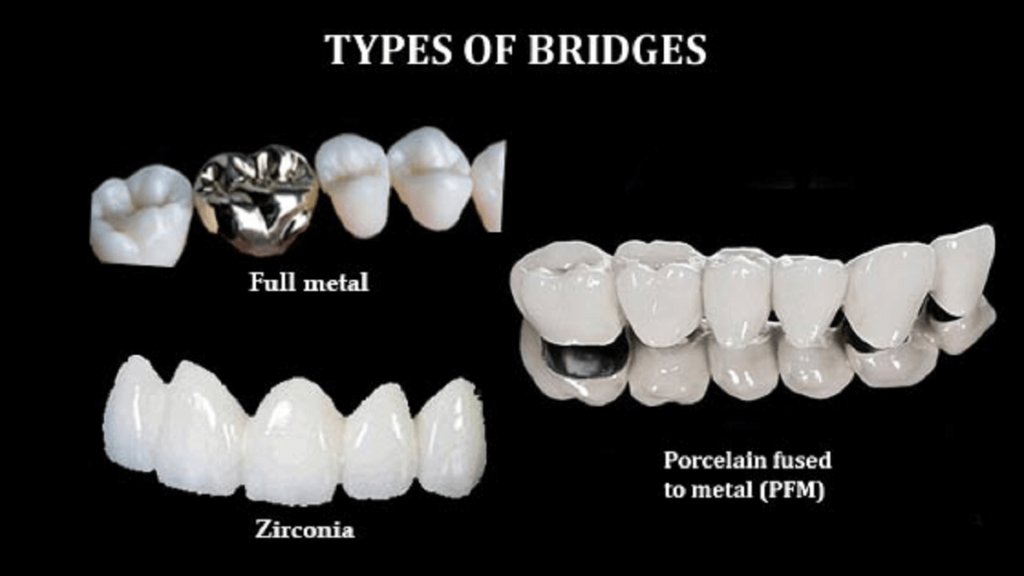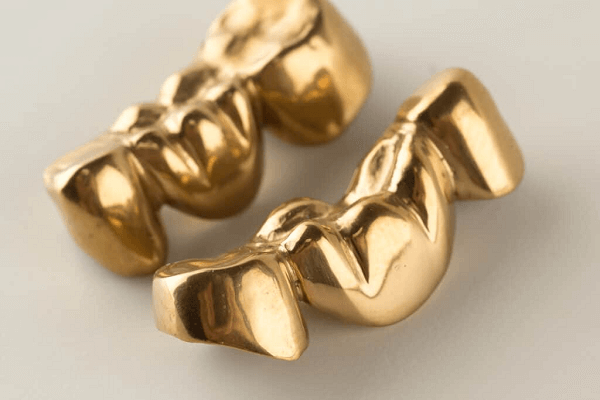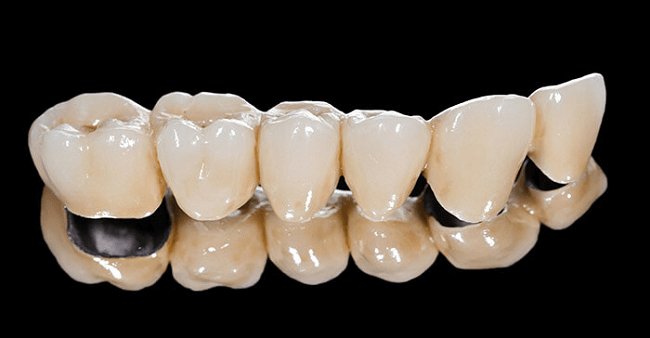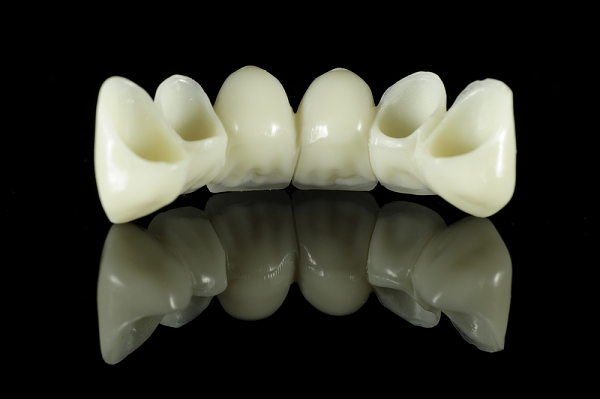The material you select for your dental bridge has a direct effect on how it will perform years later. There are many options for dental bridge materials, and each offers different strengths, appearance, and durability. Some last for decades while others may require replacement in less time than expected. Gold is very strong, but it looks very obvious. Modern materials such as zirconia look very natural but may cost more. There are then the middle options that provide you with both durability and natural appearance. In this article, we’ll discuss dental bridge material types and how to choose one.

Why Dental Bridge Materials Matter?
Selecting proper dental bridge materials influences everything from day-to-day comfort to future maintenance expenses. Different dental bridge material types handle chewing stress differently. It also depends on the location, for example, the front teeth require materials that match their appearance, while back teeth require strength for withstanding heavy chewing forces.
Your habits have a big influence on the performance of materials. If you consume a lot of coffee, some materials may discolor early. People who grind their teeth require extra-strong materials. Even your bite affects the best dental bridge materials for you. A material that is ideal for light biters could fail quickly for a heavy biter. Knowledge of these factors enables you to make a wise decision.
Properties of Dental Bridge Materials
Let’s look at the major properties of dental bridge materials that make them ideal for long-term application:
- Strength: These materials have high strength, so they can withstand the daily forces of chewing without cracking or wearing away
- Biocompatibility: They are safe for the human body and do not cause irritation and allergic reactions
- Aesthetic Appeal: Newer dental bridge materials appear natural, just like your natural teeth.
- Durability: Some materials withstand staining and retain their appearance for decades, while others become discolored in time.
- Wear Resistance: These materials are wear-resistant, which is crucial for avoiding damage to both the bridge and the opposing natural teeth
- Repairability: Certain dental bridge materials are simple to repair in case of minor damage, whereas others may need replacement
The best dental bridge material for your case combines all these characteristics according to your individual requirements and needs. Surface texture is also involved with how comfortable the bridge will be and how well it will fit with your natural bite pattern.
Commonly Used Dental Bridge Materials
Modern dentistry provides various dental bridge materials. Materials such as gold have established histories of several decades, and newer materials such as zirconia offer high-tech restorations. Knowing what makes each different gives you a better ability to discuss with your dentist which one is right for your particular case.
Gold

Pros
- Excellent long-term durability for 15-30 years with proper maintenance
- Biocompatible with minimal tissue irritation or allergic response
- Causes less wear on opposing materials than other rigid materials
- Corrosion resistant in the oral cavity
- Dentists find it easy to work with for a precise fit and margins
- Great thermal conductivity approximates natural tooth sensitivity
Cons
- More expensive than other types of dental bridge materials
- A gold dental bridge does not look aesthetic
- Needs skilled laboratory techniques for ideal results
Cost
$1200-$2,500 per tooth
Zirconia
Zirconia has been recognized as one of the top preferences among dental bridge materials. It has an incredible strength-to-weight ratio and natural look. Aidite, established in 2007, started independent research and development of dental zirconia ceramics, which helped to advance this technology. Aidite offers dental zirconia materials with strength, translucency, and biocompatibility ideal for natural-looking crowns, bridges, and implant restorations. This material possesses almost the strength of metal with the beauty of porcelain, making it ideal for front and back teeth applications.

Pros
- Excellent strength similar to metal materials
- Natural tooth-like esthetics
- Excellent biocompatibility
- Stain-resistant surface that ensures long-term aesthetics
- Metal-free structure reduces metal allergy concerns
- Multiple translucency options are available for varying applications
- Computer-aided design for accurate fitting
Cons
- Challenging to repair if damaged
- Can cause wear on opposing natural teeth compared to softer materials
- Specialized equipment and training are required for fabrication
Cost
$1,000-$1,500 per tooth
Porcelain Fused to Metal

Pros
- Well-established history with decades of clinical success
- Less costly than all-ceramic options
- Sufficiently strong for posterior use
- Excellent color matching ability for most patients
- Can be repaired if chipping of porcelain occurs
Cons
- Visible dark metal line over time at the gum line
- Porcelain can fracture or chip under stress
- A metal can lead to allergic reactions in sensitive patients
- Less translucent than natural teeth or all-ceramic restorations
Cost
$500-$1,500 per tooth
All-Ceramic

Pros
- Very good aesthetics with natural color and translucency
- Excellent biocompatibility with healthy tissue response
- Stain-resistant appearance is maintained long-term
- Ideal for patients who are metal-sensitivity
Cons
- Less strength as compared to metal options
- Greater risk of fracture
- More costly than porcelain-fused-to-metal restorations
- Less repairable if damage is suffered
- Temperature sensitivity can be greater in the short term
Cost
$800-$2,200 per tooth
Why Dental Bridge Materials Matter?
Selecting proper dental bridge materials influences everything from day-to-day comfort to future maintenance expenses. Different dental bridge material types handle chewing stress differently. It also depends on the location, for example, the front teeth require materials that match their appearance, while back teeth require strength for withstanding heavy chewing forces.
Your habits have a big influence on the performance of materials. If you consume a lot of coffee, some materials may discolor early. People who grind their teeth require extra-strong materials. Even your bite affects the best dental bridge materials for you. A material that is ideal for light biters could fail quickly for a heavy biter. Knowledge of these factors enables you to make a wise decision.
Properties of Dental Bridge Materials
Let’s look at the major properties of dental bridge materials that make them ideal for long-term application:
- Strength: These materials have high strength, so they can withstand the daily forces of chewing without cracking or wearing away
- Biocompatibility: They are safe for the human body and do not cause irritation and allergic reactions
- Aesthetic Appeal: Newer dental bridge materials appear natural, just like your natural teeth.
- Durability: Some materials withstand staining and retain their appearance for decades, while others become discolored in time.
- Wear Resistance: These materials are wear-resistant, which is crucial for avoiding damage to both the bridge and the opposing natural teeth
- Repairability: Certain dental bridge materials are simple to repair in case of minor damage, whereas others may need replacement
The best dental bridge material for your case combines all these characteristics according to your individual requirements and needs. Surface texture is also involved with how comfortable the bridge will be and how well it will fit with your natural bite pattern.
Factors to Consider When Choosing Dental Bridge Material
Selecting the best dental bridge material requires weighing multiple factors specific to your situation. Here are some of these factors:
- Location of Bridge: Location plays a crucial role. For front teeth, prioritize aesthetics and go for materials with maximum strength for back teeth.
- Bite: Your bite force affects material choice, as heavy biters need stronger options.
- Budget: Budget considerations matter too, as premium materials cost significantly more upfront but may last longer.
- Lifestyle: Consider your oral hygiene habits, lifestyle factors like teeth grinding, and any metal allergies when making your decision.
- Adjacent teeth: The condition of your adjacent teeth matters as well. Heavily filled teeth might not support certain bridge designs as effectively.
- Maintenance: Long-term maintenance needs also vary, with some materials requiring more gentle cleaning routines than others.
FAQs About Dental Bridge Materials
What is the best material for a dental bridge?
The best dental bridge material depends on factors location, budget, and preferences. Zirconia provides great strength and aesthetics in most cases.
What is the strongest dental bridge material?
Gold is still the most durable dental bridge material. However, newer materials such as zirconia offer the best combination of strength and aesthetics for modern use.
What is the longest-lasting bridge material?
Gold dental bridge materials last the longest, usually 20-30 years, then high-end zirconia and porcelain-fused-to-metal materials.
What is the best material for a fixed bridge?
The ideal material for a fixed bridge is the one that offers a balance of strength, aesthetics, and cost, depending on location and patient requirements.
Wrapping Up
Dental bridge materials directly influence the success of the dental bridge. All the materials offer different benefits, ranging from the time-tested durability of gold to the modern looks and strength of zirconia. The strongest dental bridge material isn’t necessarily suitable for every patient. Keep in mind your individual needs, budget, and lifestyle when making this significant choice. Consult your dentist closely in order to determine which types of dental bridge materials best fit your priorities. Keep in mind that the ideal dental bridge material is the one that best suits your demands for function, aesthetic appeal, and durability within your budget constraints.



